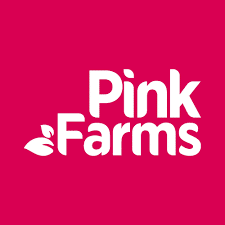Key Takeaways:
- SLC Agrícola invested in Pink Farms during its Series A funding round, nearing a $15 million target.
- Pink Farms has secured $2 million to expand its second farm and add mushroom production at a third facility.
- The company aims to produce 35 tons of leafy greens and 20 tons of mushrooms monthly, with plans to scale to 80 different crops by 2024.
- Vertical farming is growing in Latin America, with a projected market value of USD 1.93 billion by 2024, driven by urbanization and climate change concerns.
- Vertical farming offers solutions to Brazil's climate-related supply chain issues but faces competition from the traditional agro-industry.
In a significant move for Brazil’s agricultural sector, SLC Agrícola, one of the country's largest agricultural producers, has reportedly invested in vertical farming startup Pink Farms. The investment, first reported by AgFunder News, is part of Pink Farms' Series A funding round, which aims to raise $15 million. Headquartered in São Paulo, Pink Farms is one of the largest urban vertical farms in Latin America and plans to leverage this funding to expand its operations and innovate within the region's sustainable food production landscape.
Pink Farms’ Expansion and Series A Success
Pink Farms has already secured nearly $2 million from its Series A funding, according to Geraldo Maia, the company’s founder and CEO. These funds are being used to complete their second farm, a 5,000-square-meter facility, and launch a third farm dedicated to mushroom production.
“Our second farm includes an 1,800-square-meter warehouse for production and is expected to produce at least 35 tons of lettuce and leafy greens per month,” Maia said in a recent interview with Vertical Farm Daily. The first farm will be repurposed for high-value crops like microgreens and edible flowers, while the third farm will focus on mushrooms, with a target production of 20 tons per month.
Addressing Brazil's Climate Challenges
Brazil's climate presents both advantages and challenges for agriculture. Although the country’s favorable weather conditions allow for extensive outdoor farming, this dependence on nature creates supply chain vulnerabilities, especially during the rainy season. “In São Paulo, heavy rains frequently disrupt lettuce production, causing shortages at retailers,” Maia explained. “Vertical farming can address this by providing a reliable supply of fresh produce, regardless of weather conditions.”
This capability has made vertical farming an increasingly attractive solution for regions where traditional farming methods face challenges due to climate variability. Pink Farms has benefited from this by securing large orders from new clients whose regular suppliers struggle to meet demand.
Scaling for the Future: Pink Farms' 2024 Vision
Looking forward, Pink Farms aims to significantly scale its operations. By the end of 2024, the company plans to have at least three farms in full operation and two additional farms in the final stages of construction. Their ambitious goal includes producing 80 different crops, a significant jump from the current 15 varieties they cultivate today.
One of Pink Farms' key strategies for growth involves maximizing synergies between crops. For example, the company is producing mushrooms alongside leafy greens, using CO2 emissions from the greens to boost mushroom yields. “Synergy like this is something we prioritize when selecting new crops,” Maia said.
Latin America: An Emerging Hub for Vertical Farming
Pink Farms’ expansion is emblematic of a broader trend across Latin America, where the vertical farming market is expected to grow significantly in the coming years. According to Statista, the market is projected to reach USD 1.93 billion, with a compound annual growth rate (CAGR) of 21%. Factors like rapid urbanization, population growth, and the need to secure food supplies amid climate change are key drivers behind this growth.
Chile’s AgroUrbana has already launched the continent’s first large-scale vertical farm, raising $4 million in Series A funding to expand its operations. With Pink Farms leading the way in Brazil, the region is poised to become a major player in global vertical farming.
Challenges and Competition
Despite its growth potential, vertical farming in Brazil faces stiff competition from the traditional agro-industry, which still dominates the country's economy. Agriculture accounts for over 10% of Brazil’s GDP, and traditional farming methods typically produce food at lower costs than vertical farms. As a result, the current customer base for vertical farms remains largely restricted to high-end restaurants, hotels, and affluent consumers.
Nevertheless, Pink Farms is betting on the long-term potential of its business model, believing that technological advancements and increased demand for fresh, locally grown produce will drive future growth.
With the support of investors like SLC Agrícola, Pink Farms is helping pave the way for the future of food production in Brazil, demonstrating that vertical farming can play a critical role in addressing the country's agricultural challenges.



2 Comments